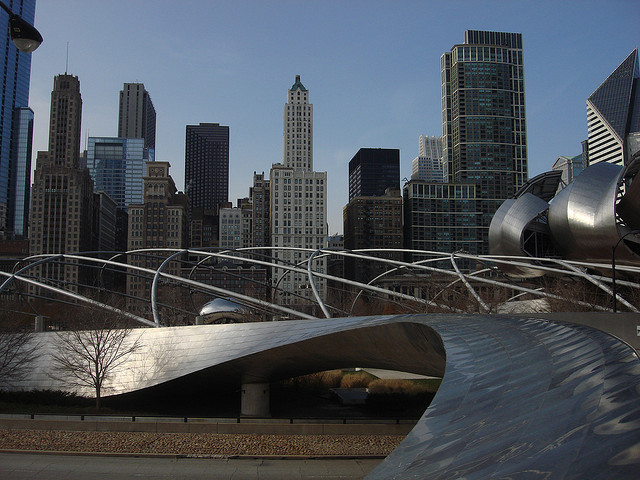
Congress’ passage of a comprehensive immigration reform (CIR) bill would mark the end of a contentious political battle. But for undocumented immigrants all over the country—as well as their families, the organizations and institutions who serve them, and the people and businesses who employ them—it may also signal a starting line. Legalizing millions of people will be a national challenge as well as a local one, especially in Chicago, which over a half-million undocumented immigrants call home. In advance of “What Would Immigration Reform Mean for Chicago?”, a Zócalo/Azteca America event, we asked people who study and serve immigrants in the region: What is the biggest challenge Chicago will face if comprehensive immigration reform passes?

For Chicago, the biggest challenge of comprehensive immigration reform will be to successfully legalize the hundreds of thousands of undocumented persons who call this region home. We need to realize that the legalization process envisioned by the U.S. Senate will be substantially more difficult to implement than the last such program of the late 1980s.
First off, the local undocumented population is five times larger than it was in the late 1980s. We’re looking at 550,000 undocumented persons in Illinois; the last legalization program involved about 110,000.
Second, the prevailing ethos of cheap, minimal government means there will be much less federal support for legalization. Chicago won’t be seeing the kind of large-scale federal money that, last time, subsidized nonprofits and state governments to process immigrant applications, teach English, and smooth the transition for communities.
Third, our nonprofit sector’s capacity to help is stretched like never before. Illinois’ fiscal crisis has beaten down nonprofits with diminished, delayed, and inadequate payments in return for managing our social safety net. Poverty is up and social service providers are overwhelmed.
Despite the obstacles, legalization is critical for Illinois and Chicago. Our region is aging, losing population, and fighting to remain attractive as a world-class region. Our future rides on the infusion of workers, talent, drive, and, yes, taxes of immigrants. No matter what we think of unauthorized migration, no economic development policy compares to the benefits we will reap from freeing undocumented immigrants to move up the ladder, open businesses, get skills, and buoy our society. Legalization is about our future.
Rob Paral is a Chicago demographer. He may be reached at www.robparal.com or via his blog, Chicago Data Guy (http://robparal.blogspot.com/)

Comprehensive immigration reform legislation offers much promise to the 1.8 million immigrants in and around Chicago, including the more than half-million unauthorized immigrants. But even the best promises can be undercut by restrictive procedures. If CIR is enacted, many hopeful Chicagoans will find themselves shut out of legalization by what are shaping up to be onerous eligibility criteria.
As it currently stands, the Senate’s immigration proposal would bar many people who go about their daily lives as ordinary community members from obtaining the provisional green-card status that could eventually lead to citizenship. Even though immigrants commit fewer crimes than the native-born, the criminal bars to eligibility for legalization would affect many people convicted of relatively minor crimes. A conviction for jumping the turnstile to get on one of Chicago’s famous El trains, shoplifting, or a few misdemeanor marijuana possession convictions will likely thwart the legalization hopes of many, even if those convictions are in the distant past.
Innumerable Chicagoans commit these offenses every year, but many, such as students in the city’s elite college campuses who surely smoke marijuana on occasion, do so without encountering the criminal justice system. Thousands of others, however, are caught and convicted of these common offenses. For most, the consequences are trivial—a fine or a few days in jail. But for unauthorized immigrants, such convictions are likely to mean ineligibility for legalization, no matter how otherwise exemplary they may be.
Congress is poised to deem many unauthorized Chicagoans unworthy of legalization. They will continue to live in the shadows, forced to endure the uncertainty of being apprehended by immigration officials at any moment by the ordinary mistakes that countless in our society make.
César Cuauhtémoc García Hernández publishes the crImmigration.com blog about the convergence of criminal law and immigration law and is a visiting assistant professor at the University of Denver Sturm College of Law.

There are 500,000 undocumented immigrants in the State of Illinois anxiously awaiting a vote on immigration reform.
The major challenge we will face when comprehensive immigration reform passes is having the human resources to inform and serve immigrants who will go through the registration process. The current bill before Congress contains language about integration efforts, but the $100,000,000 earmarked for those efforts is not sufficient for a national public education campaign, legal assistance, and application assistance for 11,000,000 undocumented immigrants nationally.
Chicago and other cities will have to build the capacity of nonprofit community-based organizations and faith-based institutions in order to ensure that accurate information and service is provided to all community members. The Illinois Coalition for Immigrant and Refugee Rights and the implementation committee are working with a variety of key stakeholders around the state to create an effective service delivery.
Ahlam Jbara is Deputy Director of the Illinois Coalition for Immigrant and Refugee Rights.



